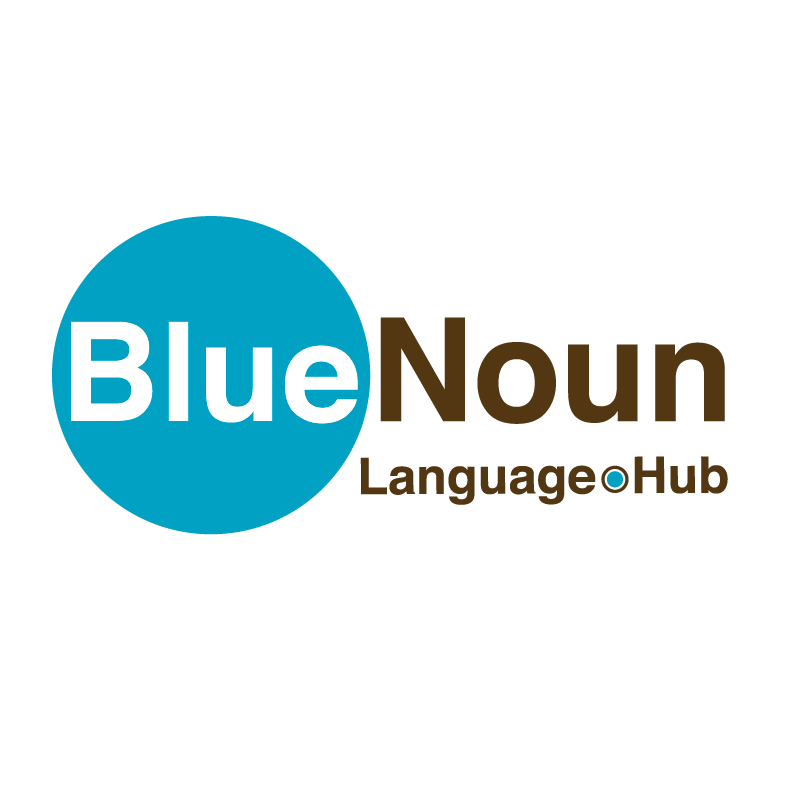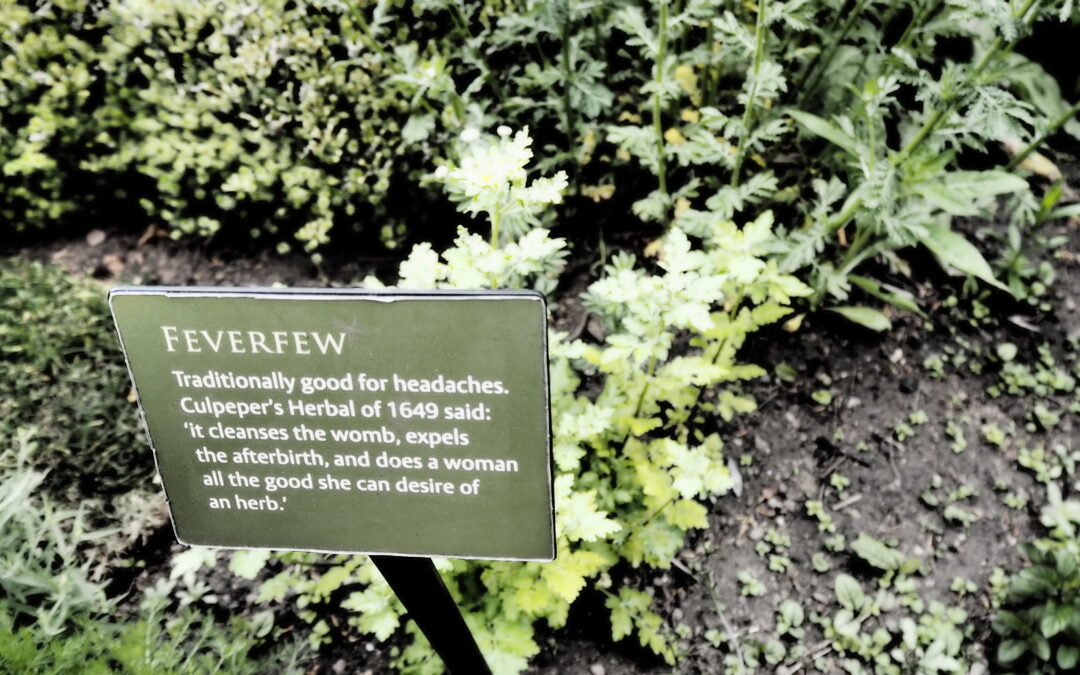Image – Stirling Castle’s Herb Garden
Introducing Claire & her Herb Hut
At Blue Noun English Language School (now Blue Noun Language Hub) we have a few close friends and collaborators. This blog introduces Claire Mullan, AKA the Herbal Hippy and her role within our non-traditional language school.
Claire is a qualified and practising herbalist with a full client list. She also teaches workshops encouraging community members to look for health solutions in plants.
Her workshops include outdoor foraging and indoor health & wellbeing workshops.
Blue Noun invite Claire to work with our language guests in these various ways, depending on the time of year and our language guests interests she’ll have a workshop to engage you and get you talking.
Claire also runs a community Herb Hut. This is a weekly drop-in study group for self-learning herbalism.
The format of Herb Hut is that her group is assigned a weekly herb and then search through Claire’s extensive library in research – pooling the results together at the end.
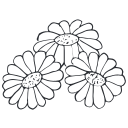
A Non-Traditional Language School & Community Hub
During the winter months, Herb Hut actually takes place in our learning space (with our language and the community joining together in true ‘hub’ style).
Outside winter months it takes place at her amazing space at Cultybraggan Camp – a previous WW2 prisoner of war camp that has found new purpose in housing tens of micro industries. In itself it’s a fantastic visit – and one on our activities list too!
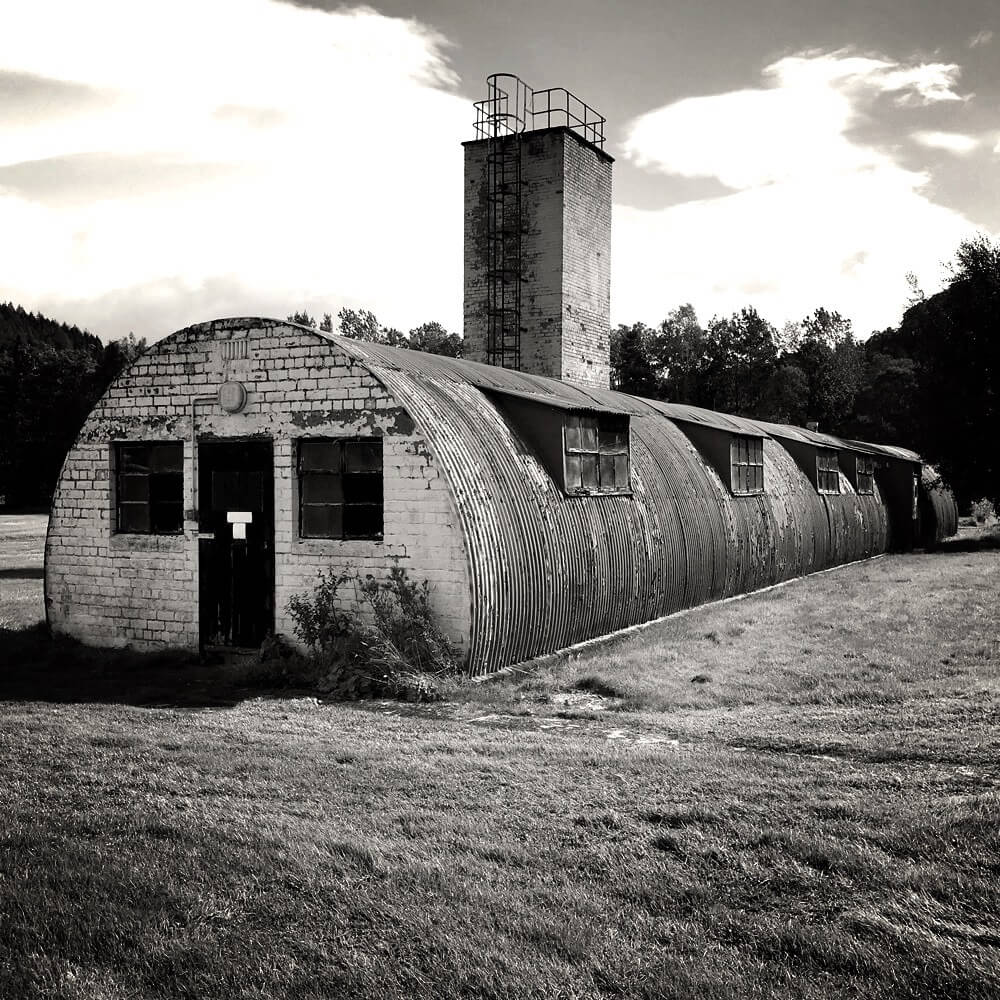
“Claire is based at ‘Camp 21,’ Cultybraggan’s historic POW Camp which in itself is thoroughly unique and very poignant. You can still feel the god-forsaken experience of a POW camp.
For students who have an interest in visual culture, this itself is a remarkable visit.”
Ruth, 2019
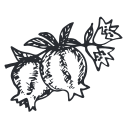
Sample Herb Hut Lesson
What a treat – a trip to Claire’s Herb Hut at Cultybraggan Camp (Comrie) to learn about her ‘Herb of the Week’. This week, we were finding out about Tilia (Lime Tree Flower), all the while relaxing in a truly glorious part of our world.
Most often views are vast. To appreciate this one you’ll need to swap your binoculars for a magnifying glass and look closely.

A Haven for Nature
Claire’s self-seeding (with some starter-planting to get it going) herb garden has turned into a meadow, and she’s only four summers in. It’s a small corner of our planet, but cherished – and vast in variety of indigenous* Scottish wildlife.
Even better, Claire is a fully-qualified herbalist and knows how to (sustainably) gather the different parts of her plants (and indeed wild plants all over the region) which she prepares as medicines for her patients.
Today’s herb Tilia is a calming herb. It can actually reduce high blood pressure, not just by relaxing one’s arteries (which it does), but also by reducing one’s stress levels – an underlying contributing factor in high blood pressure.
As Claire says, herbalist philosophy is to treat the person, not the symptoms, to get to the cause of the manifesting health issues.
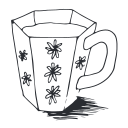
No doubt for me that the freshly brewed (and delicious) Tilia tea helped me slow down to appreciate the wonder of each discovery.
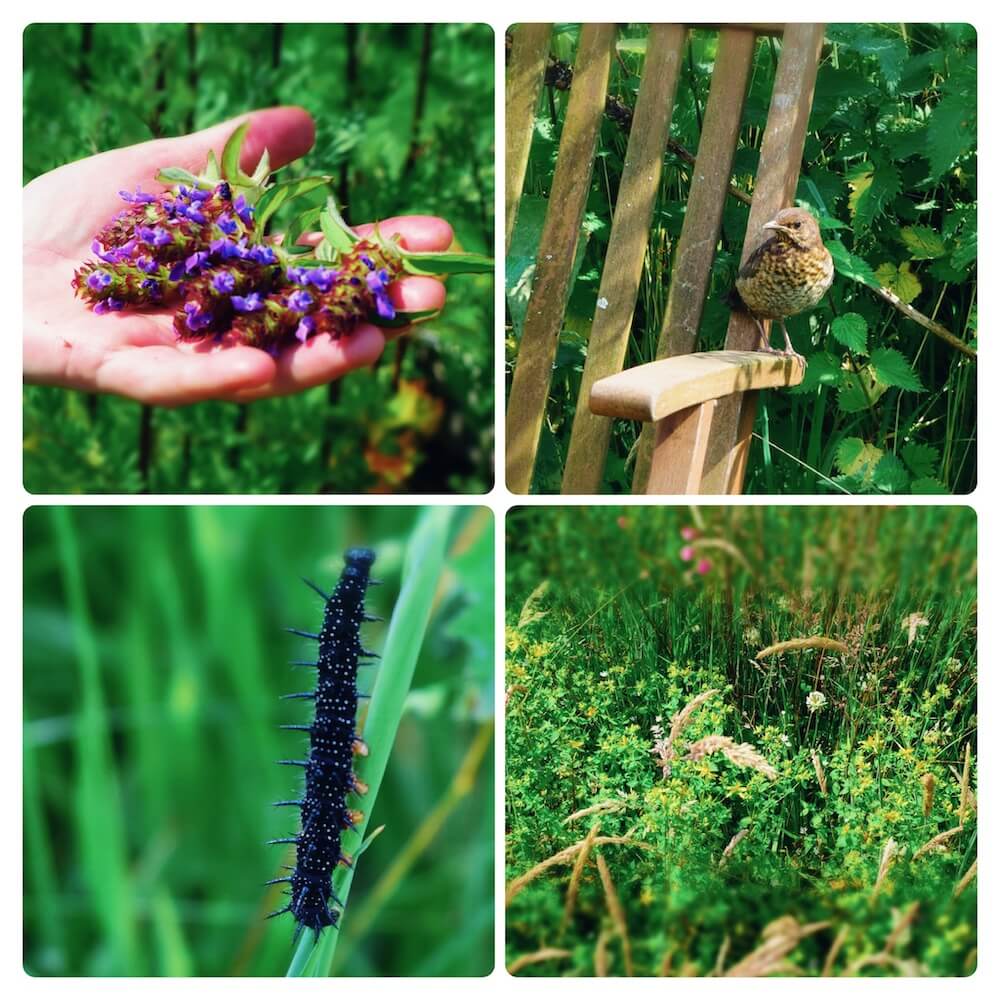
How’s This for a Classroom?
Today’s herb garden visit witnessed a fledgling blackbird straight out of its nest for the first time. A spiky, bluish-spotted caterpillar (my mum would know which), and the flowers Angelica and Self Heal (Prunella Vulgaris).
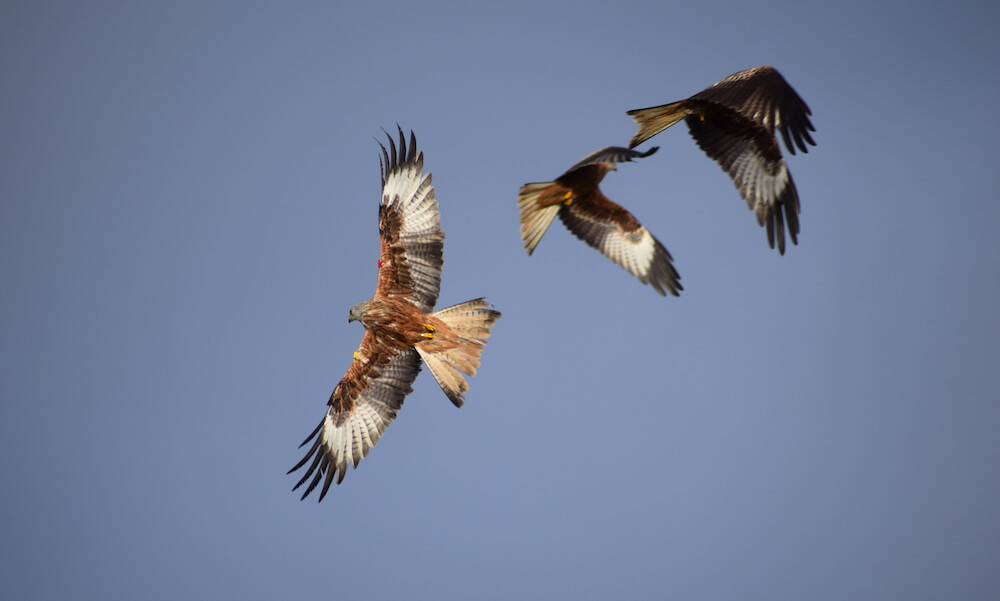
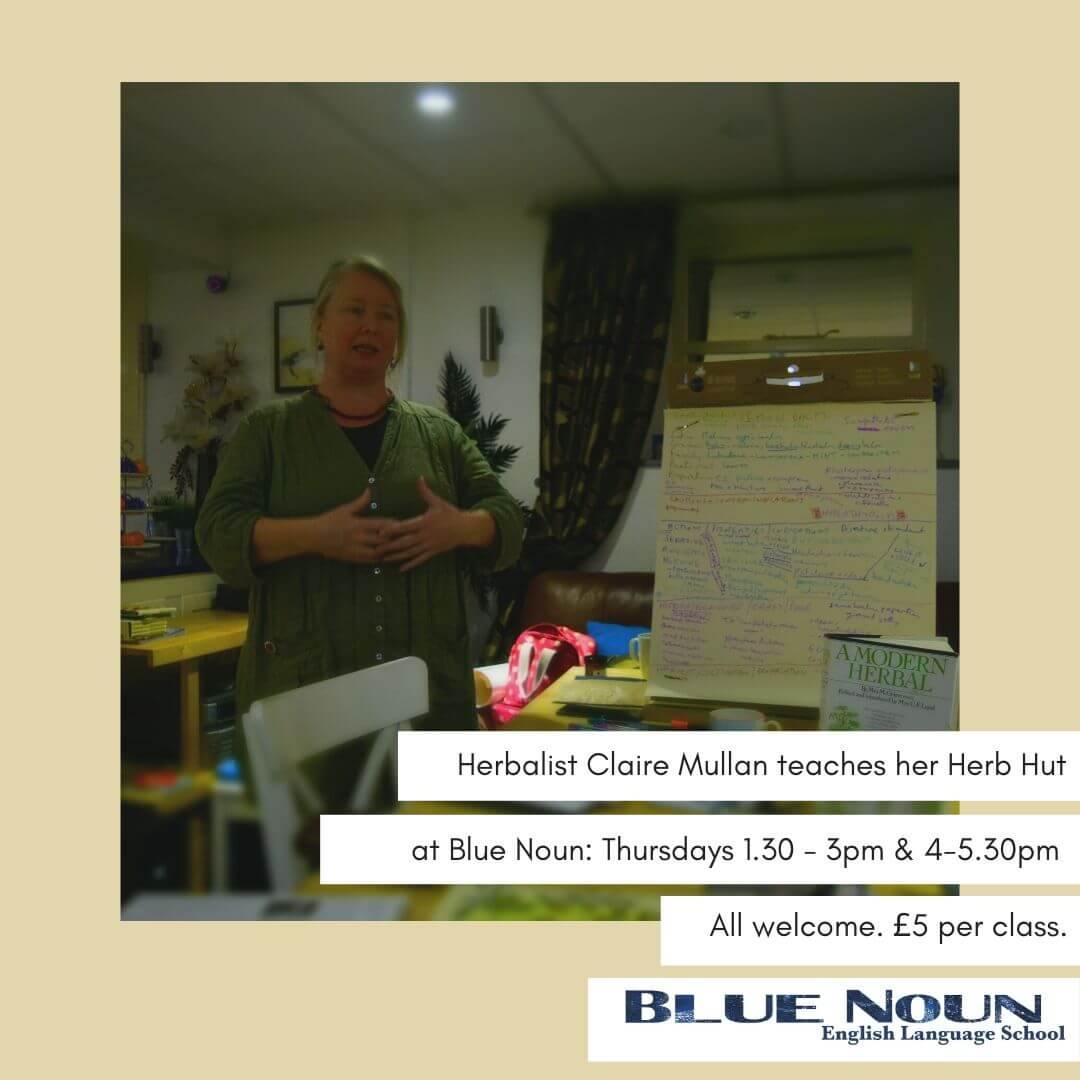
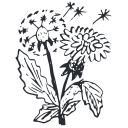
A Non-Traditional Approach to Gardening
*Just in case you don’t know, indigenous plant species are critical to supporting our wildlife as their cycles are the ones that insects rely on. Designer plant species might look pretty but seldom offer the same habitat and support to wildlife.
Keep Gardens Natural!

Find out more about Claire’s Herb Hut and herbalism practice here.
If you’ve enjoyed our quick portrait describing how our non-traditional Language School fits herbalism onto its course, you might enjoy reading:
